So you want to become an Agentic Sage?
A breakdown of my conversation with Brian Whetten on the path to high agency and high consciousness
A few months ago, I saw this image on X from a post written by Peter Limberger.
I drew the red line on it to demonstrate the path I’ve seen most people traverse who seek to hold both high agency and high consciousness.
The journey goes something like this…
You start out in victimhood (bottom left), learn how to take responsibility for your life and make shit happen, then realize behind all the achieving and killing it, is a bunch of unconscious insecurity and low-self esteem.
Realizing that you’ve spent most of your life robotically experiencing life from your unconscious wounds and conditioning redirects you on a consciousness path. In spiritual bypass land, you might start to look down on all the achievement activities that once fueled you.
Eventually, you realize that orienting your entire life around healing all day isn’t really the answer either. So you reorient again to begin learning how to pursue expanding consciousness and contributing to the world at the same time.
The road described is a windy and painful road. I know, because I’ve lived it!
I recently had a conversation with Brian Whetten to investigate whether it’s possible to minimize the windiness?
He’s spent the better part of 25 years reverse engineering this question by studying people who are operating from a place of both high consciousness and high agency.
I found his ideas from our conversation so intriguing that I wanted to write this post on them in order to understand them better. This is my best attempt at summarizing my understanding from our conversation and props to Brian for creating these epic visual aids which are integrated into our discussion on Youtube.
The Success vs. Spirituality Duality
Let’s start out by acknowledging the seeming duality that exists in our culture. People seem to think you need to choose between pursuing consciousness or pursuing success.
Both consciousness and material agency are forms of power. Brian defines power as the capacity to influence or change reality. Power in itself is morally neutral. You can use it to improve the world or destroy it.
On the road to success, maybe you make a lot of money and use those resources to make shit happen. This is an expression of power. People at a certain level of awareness may have the ability “to know things” which guide their choices or perform extraordinary feats like others through intention. This is a different expression of power. Both axes render an increased ability to change reality just in different ways.
Many people, like myself, are interested in transcending this false duality and pursuing both at the same time. My journey of how to do this is the subject of my book Conscious Accomplishment: How to use Personal Achievement For Spiritual Growth which comes out in early October.
As any traveler who has attempted this path before will tell you, it ain’t easy! In my experience, there isn’t a ton of good maps or long standing traditions in western culture that guide you how to do both at once.
This newsletter is sponsored by Conscious Talent - where companies and leaders who value both professional excellence and inner work connect to build transformative businesses.
Join our Talent Network or learn about us supporting your hiring needs today!
So why is doing both so hard?
What both Brian and I have seen is that at some point in your life, a wall shows up. All of a sudden shit gets hard. If you were in high agency, achiever land, no matter how hard you push and fight, all your clever strategies don’t work anymore.
It’s like an invisible wall has been placed in front of you through the people and events unfolding around you preventing you from getting what you want.
This wall often redirects people on to a spiritual path, moving them from the bottom right quadrant to the top left.
Reflection - is there a “wall” in your life right now. Where does it feel like no amount of pushing is working?
What is this wall and why does it show up?
Brian believes the wall shows up when we have a greater ability to change reality, than our ability to use it for good. Or in his language, it appears when our power is greater than our leadership. In this framework, Leadership is our ability to turn our power into value for ourselves and the larger system you find yourself in.
This wall isn’t an inconvenience. It’s a natural law of the universe like gravity or physics. It’s benevolent in that it slows us down when our capacity hasn't caught up to our power. This prevents you from destroying yourself or the system you find yourself in when there is more power than you can steward.
But what about all the powerful assholes in our world? Where’s their wall?
Remember the wall exists on the dimensions of consciousness and material power (agency). So there are a lot of people with tons of material power, but low consciousness like self-serving business magnates. And there’s a lot of people with high consciousness and low material power like broke spiritual teachers and coaches.
But if you want both, which seems to create 10-100x results, you need to evolve yourself in ways that the wall moves.
I want to reflect more on this natural law existing that Brian talks about through some evidence I have seen.
Developmental Gatekeeping
On the consciousness journey, it seems that certain abilities come online when the student is ready to wield them. For example, the opening of the heart creates access to information beyond the intellect. If we had a bunch of clairvoyants or intuitives going around telling people when they were going to die, that’d be really bad. However, because many people with these kinds of abilities are at a certain level of development, this mostly doesn’t happen. This is just one example, but you can find many as you explore the relationship between human potential and consciousness development.
This development gatekeeping appears to be an intelligent design and aligns to the notion that there is a wall preventing us from accessing power until our leadership can handle it.
The Upper Limit
Other realities that tend to support this idea are the upper limit problem famously popularized by Gay and Katie Hendricks. Somehow we tend to sabotage ourselves when things get too good. Why do we do this?
One potential reason is that the wall prevents us from expanding faster than our nervous system and leadership can handle.
Personal and Cultural Growth Cycles
Whether it's spiritual evolution or civilizations, there seems to be periods of expansion and contraction. You reach a peak, then crash, which forces integration before the next ascent. I can’t tell you how many times I think I’ve cleared the mess in my life, until the universe humbly puts me in my place…then rather organically, I gradually find myself on a new vista of experience as I keep going.
The same expansion and contraction where the power outpaces the leadership can be seen throughout famous civilizations. Rome comes to mind. If the level of leadership does not evolve, eventually there is a collapse.
What About The Powerful Assholes Who Get Away With It?
How is it that many people can wield massive amounts of power with little leadership? Brian probably has more thoughts on this, but here’s what comes up for me.
The first is that assholes aren’t usually operating from a high consciousness. So there’s material power, but a lack of understanding. As a result, this power isn’t channeled in a way that makes their inner world and the system they operate within better. So we’re really only talking about one form of power (material) vs. both.
Still, why aren’t they limited by some wall? If there is in fact a universal law, I can’t help but wonder if certain walls operate on longer timescales. Maybe someone doesn’t hit the wall in this lifetime, but are moving towards a massive one over the broader continuum of their soul’s evolution. Maybe this exact life of having an insane amount of power with little wisdom, is exactly what their soul wanted in this lifetime which somehow creates special conditions for this law. Who really knows…
Overall, I do see enough compelling evidence to be open to the idea that the gating factor of high consciousness and high agency is related to our capacity for power and leadership.
Moving The Wall
So if this wall shows up that many of us have seemingly encountered, how do we move past it?
Before we get into the specific strategies, it’s important to grasp the big idea.
You don’t fight the wall, try to maneuver around it, or find a secret trap door. This doesn’t work because you’re dealing with a structural limitation of reality.
The way to shift your experience is to expand yourself so the wall moves. This requires not just awareness, but also healing the holes inside that prevent you from being able to effectively wield power so that it positively impacts everything around you.
You can’t skip the healing part if you want to be both high consciousness and high agency.
Let’s get practical with Brian’s 3 keys (and distinctions) on how to evolve yourself so that the wall moves.
Proving Worth vs. Providing Value
When you hit the wall, most people default into “proving worth” vs. providing value. Proving worth is basically prioritizing activities oriented around external validation, status, or self promotion.
Imagine a business owner that doesn’t have many clients and thinks the answer is growing an audience by sharing how much they know. I have certainly been guilty of this. It’s what our society teaches us to do and there’s people out there who are seemingly being rewarded.
But if you’re facing a wall, this may not be your path. All proving worth is really doing, is attempting to cover a hole inside. And the emptiness of the hole continues to get reflected back to you, by the lack of ease in your pursuits.
Providing value on the other hand is about directly having conversations about value with others, instead of proving you’re valuable. He gets into more refined detail on what this looks like in our conversation.
How does focusing on providing value move some invisible reality wall? When you’re in proving mode, the underlying message you’re broadcasting to the universe is “I’m not enough yet.” Every action is subtly trying to fill a hole inside rather than create value outside. As a result, you continue bouncing against the wall instead of healing your insecurities so that the wall can move itself.
When you orient toward creating value for others your power starts serving the larger system instead of placating the patterns of your ego. This is the exact leadership capacity the wall is asking of you. Value exchanged in real relationships creates the flow of giving and receiving. That circulation of energy stretches your capacity to steward more, so the wall gradually moves.
Reflection - are you proving worth or providing value right now? What does reorienting around providing value look like?
Pushing Against Vs. Being Pulled
Pushing against the wall is when you try to force your way into the next level through willpower, pride, or hustle. You can imagine the high agency person who keeps trying to do the same old moves that once worked like efforting harder, but don’t get anywhere.
The same principle applies to people who are applying the same mindset to expanding their consciousness. Consider the spiritual aspirant who is determined to get enlightened. Or the person who is obsessed with healing themselves and does 27 ayahuasca journeys in a year.
All this forcing often creates pride instead of moving the wall. I know this pattern and its limitations intimately well.
Earlier in my journey, I’d spend 2-3 hours a day doing contemplative practices. I thought I was on the fast track to enlightenment. When people asked about my morning routine, a part of me couldn’t wait to share how long I spent meditating and all the esoteric practices I was engaging in. There was absolutely some good that came from that level of dedication. However, I was also doing it in a way that bred spiritual pride instead of healing the underlying insecurities.
The alternative path to pushing against the wall is to focus on activities that pull you through it. Instead of forcing, these activities help you grow into alignment with the next stage by healing the holes inside and aligning with value creation.
Brian’s favorite way to be pulled through the wall is picking Yes, Yes, Hell No goals. He’s written a whole book on this idea of how powerful, aligned, scary goals create the container for healing and expansion.
The message in my upcoming book is pointing to a similar concept. It’s not about spirituality or getting shit done. It’s using the process of moving towards things to inform the evolution of consciousness. Goals and making things happen are the container that creates opportunities for transformation.
Reflection - Where and how are you pushing against the wall? What would a big, aligned, but scary goal look like that could pull you through the wall?
Seeking Power Vs. Finding Containers
Seeking power is when we directly chase more power (money, awareness, or influence) thinking it will fix our problems. Paradoxically, this tends to deepen the imbalance and amplify your insecurities. You can imagine the startup CEO who thinks that the answer to his problems is going EVEN BIGGER. Or the spiritual aspirant who thinks he just has to meditate even longer to magically create financial freedom. Done in isolation, neither of these approaches tend to work if you’re trying to expand your capacity for high consciousness and high agency.
An alternative approach is to intentionally find containers that are greater than your current leadership (the capacity to turn power into value). These experiences force you to expand your ability to hold and use power. As you grow yourself, the wall moves itself.
Brian shares that in an ideal container value flows in and out, people are stretched, but held, and leadership capacity grows to match the power. Some examples could include an entrepreneur creating a business that requires more responsibility than they currently know how to handle, or entering a coaching relationship or group container that will push your edge. The key is that it stretches you safely while you develop the inner leadership to meet the power you’re being trusted with.
Reflection - are you in a developmental container that is greater than your current leadership? If not, what could you do to create or find one?
Where To Go From Here
For anyone who is trying to evolve spiritually and expand their capacity to contribute to the world, there’s a lot of richness in Brian’s models. It can feel overwhelming how much is here.
Here’s a few practical tips to take away if moving into agentic sage territory (high agency + high consciousness) is exciting to you.
Acknowledge the wall by taking inventory of where life feels stuck
Be honest with yourself about how you’ve been approaching it
have you been trying to prove worth, pushing against the wall (go harder, more effort), or directly seeking power?
What does reorienting around providing value look like?
What would a big, aligned, but scary goal look like that could pull you through the wall?
What type of intentional container could you find or create that is greater than your current leadership?
These steps aren’t a one-time thing. They’re more moves to train, like an athlete practicing the same motion until it becomes second nature.
In my own practice, I’m going to try and be acutely aware of when I’m trying to prove worth or push against the wall. Each time I observe it, I write it down and then go into it using a practice called repatterning similar to the ones in this post. This helps me heal the holes behind this way of relating to the situation.
If you enjoyed this post, I recommend listening to the full conversation with Brian and also reading his book!
-Scott


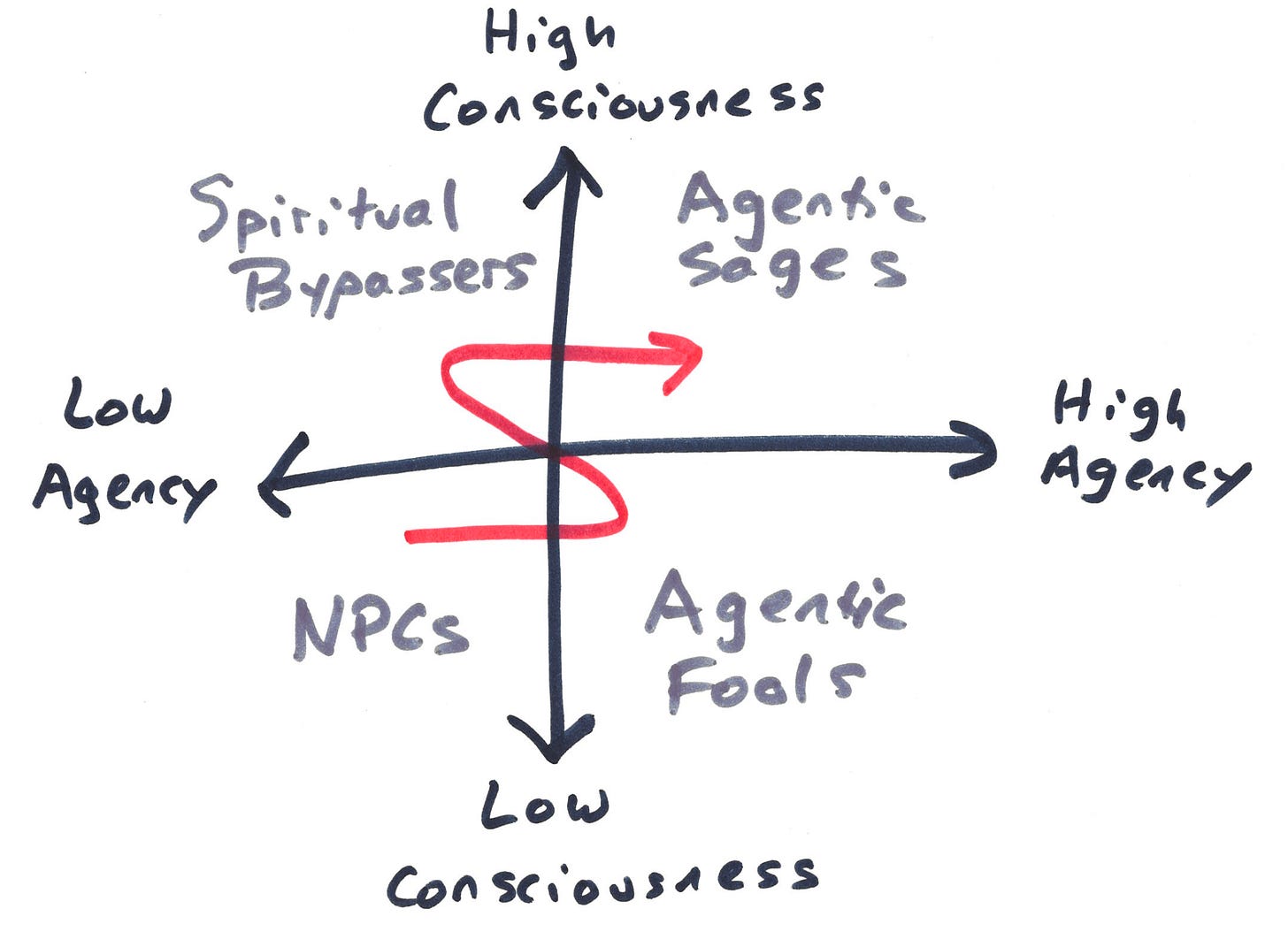
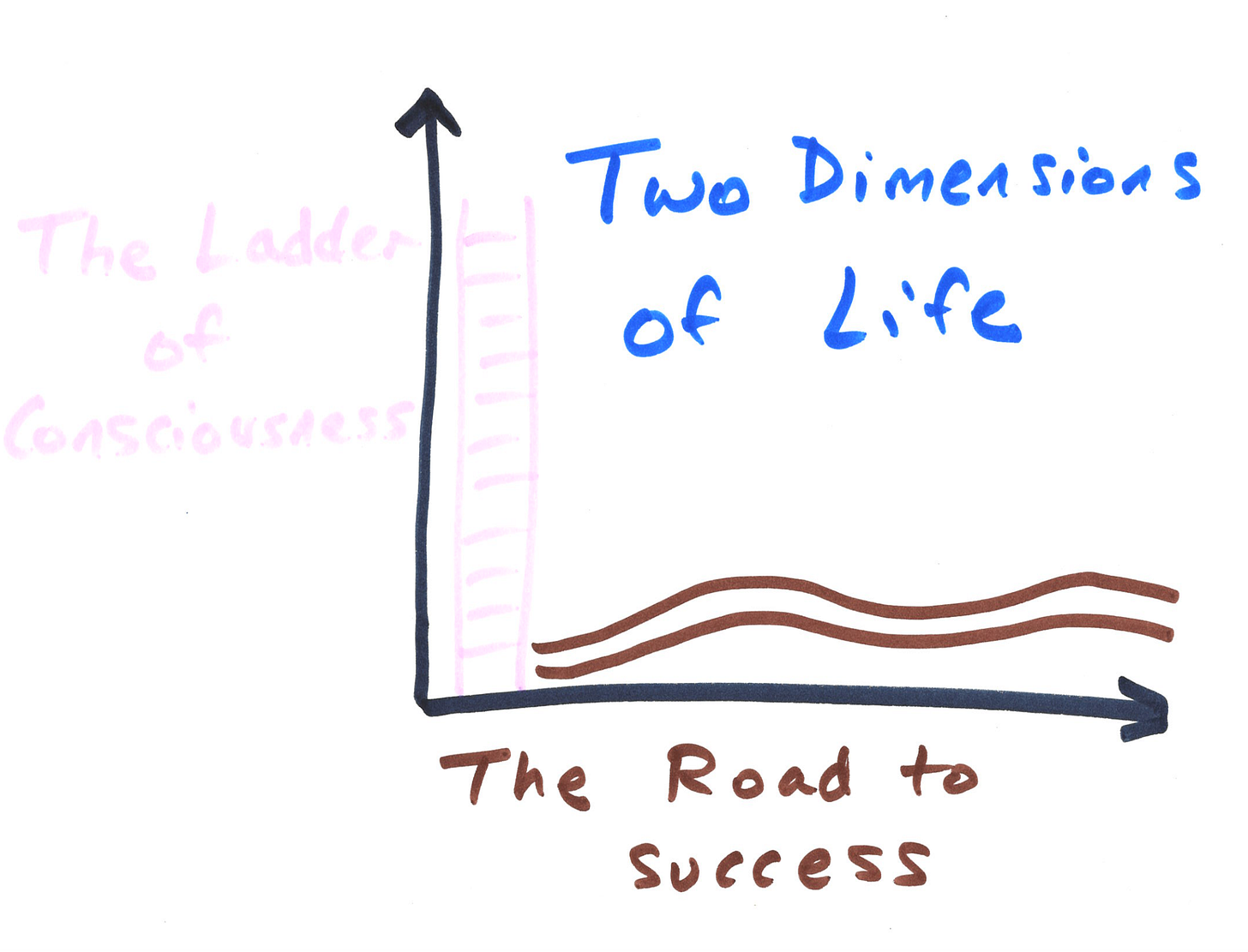
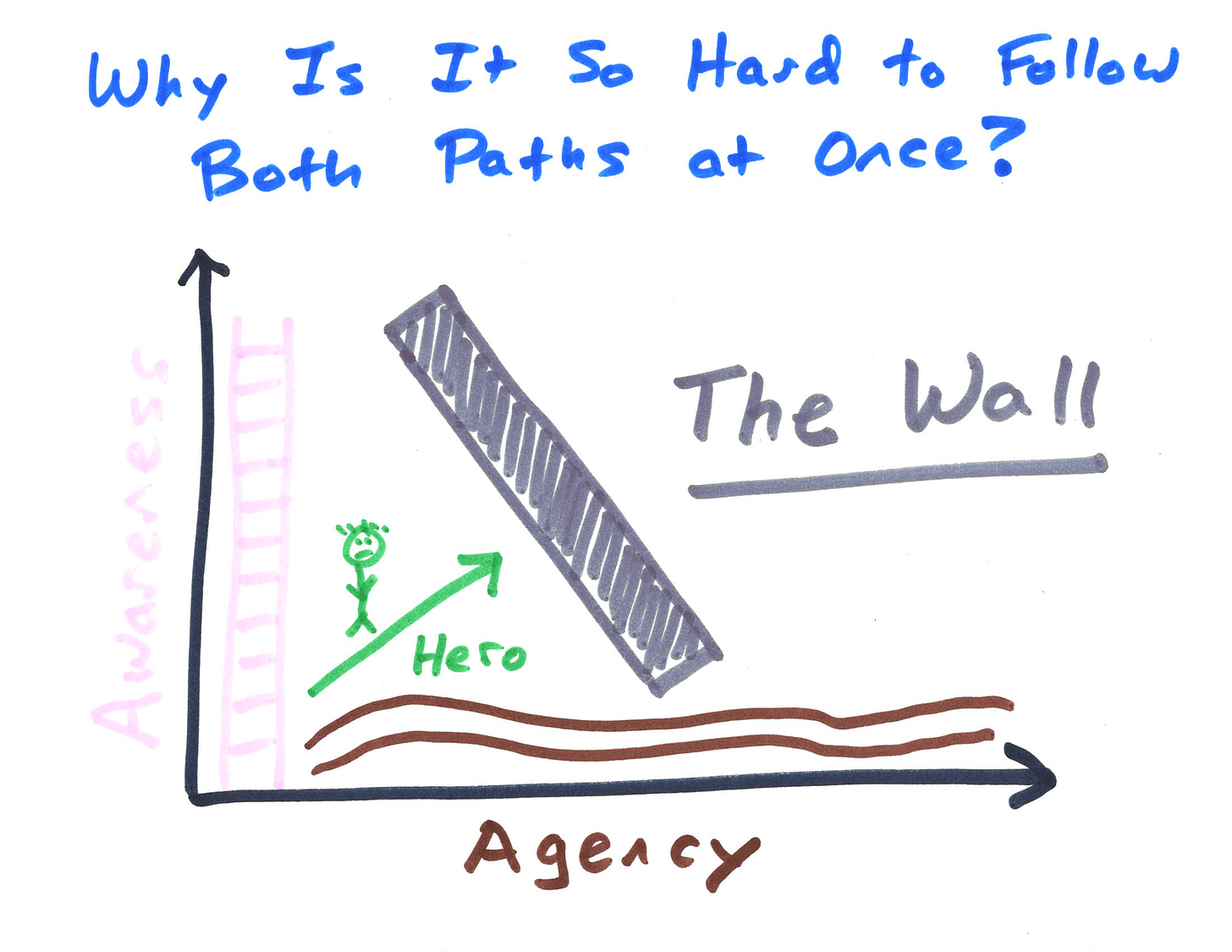

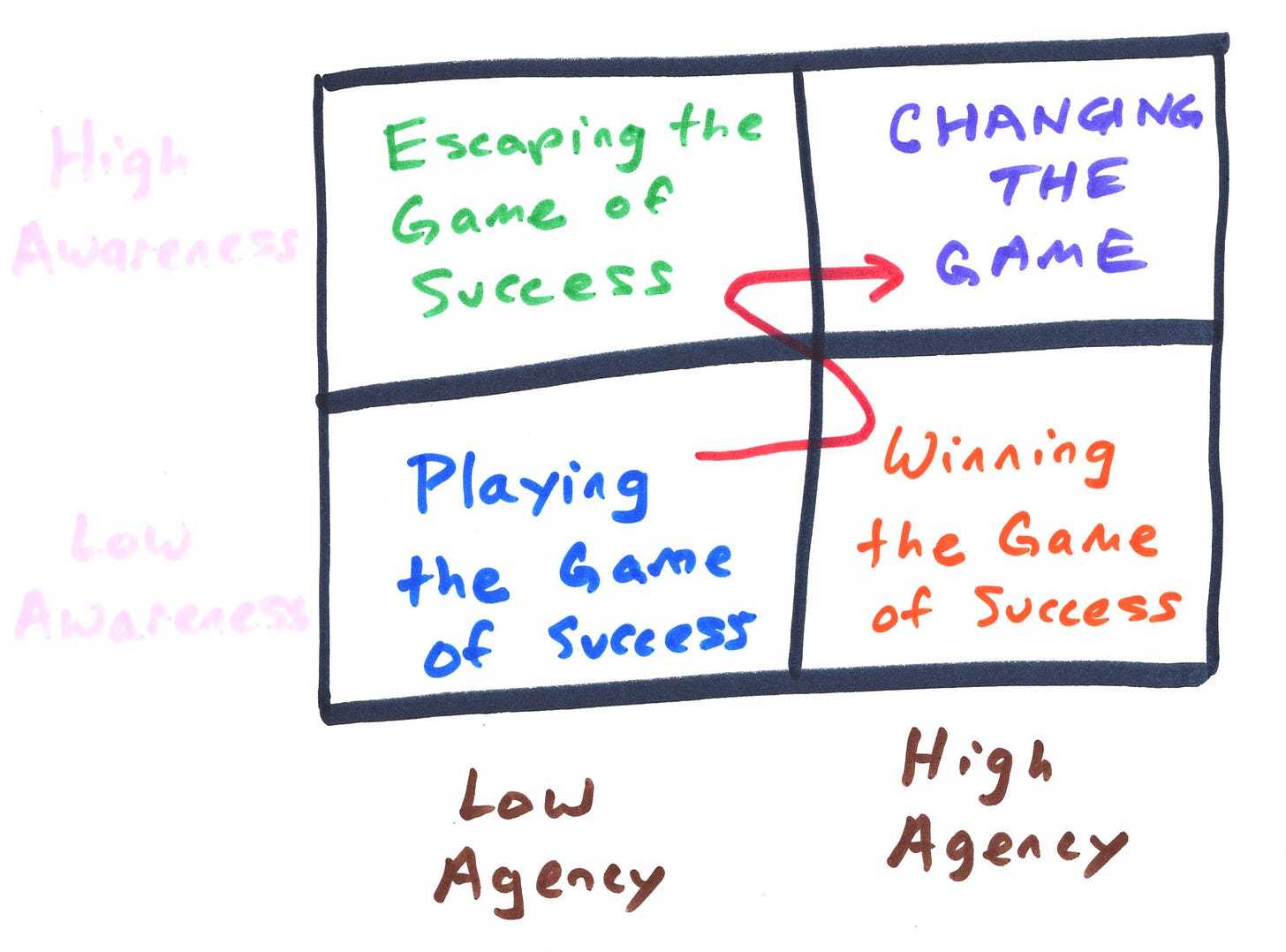
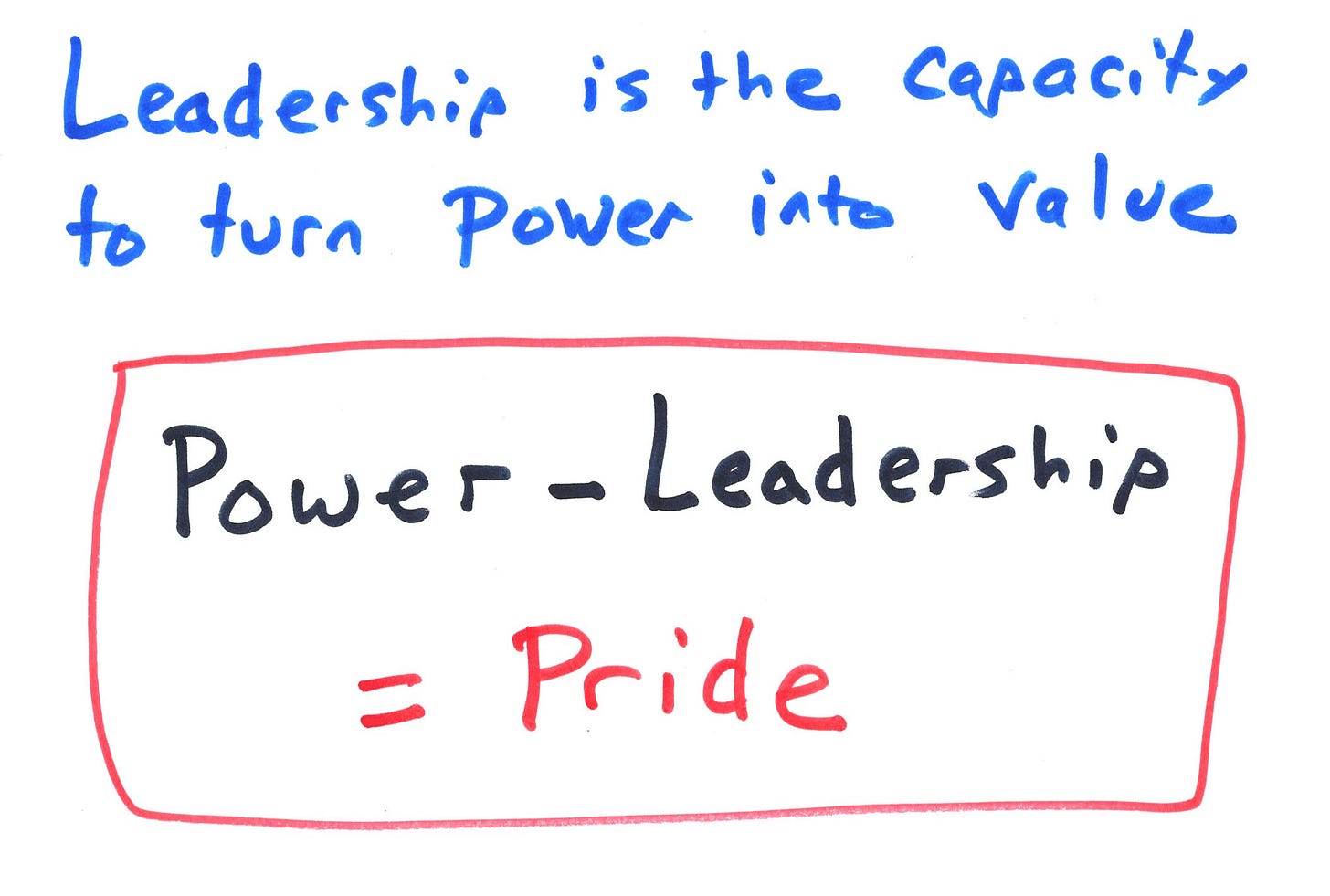
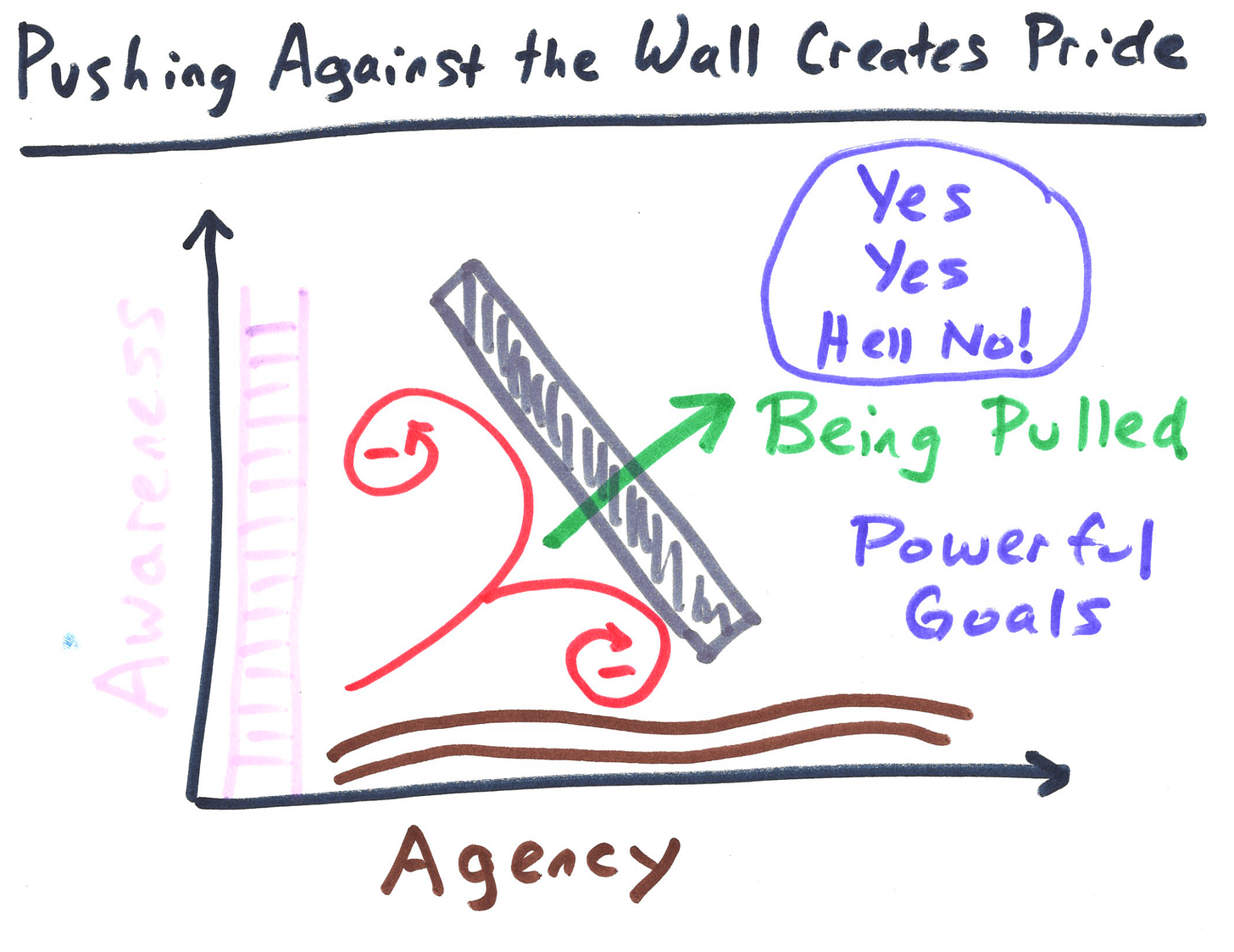
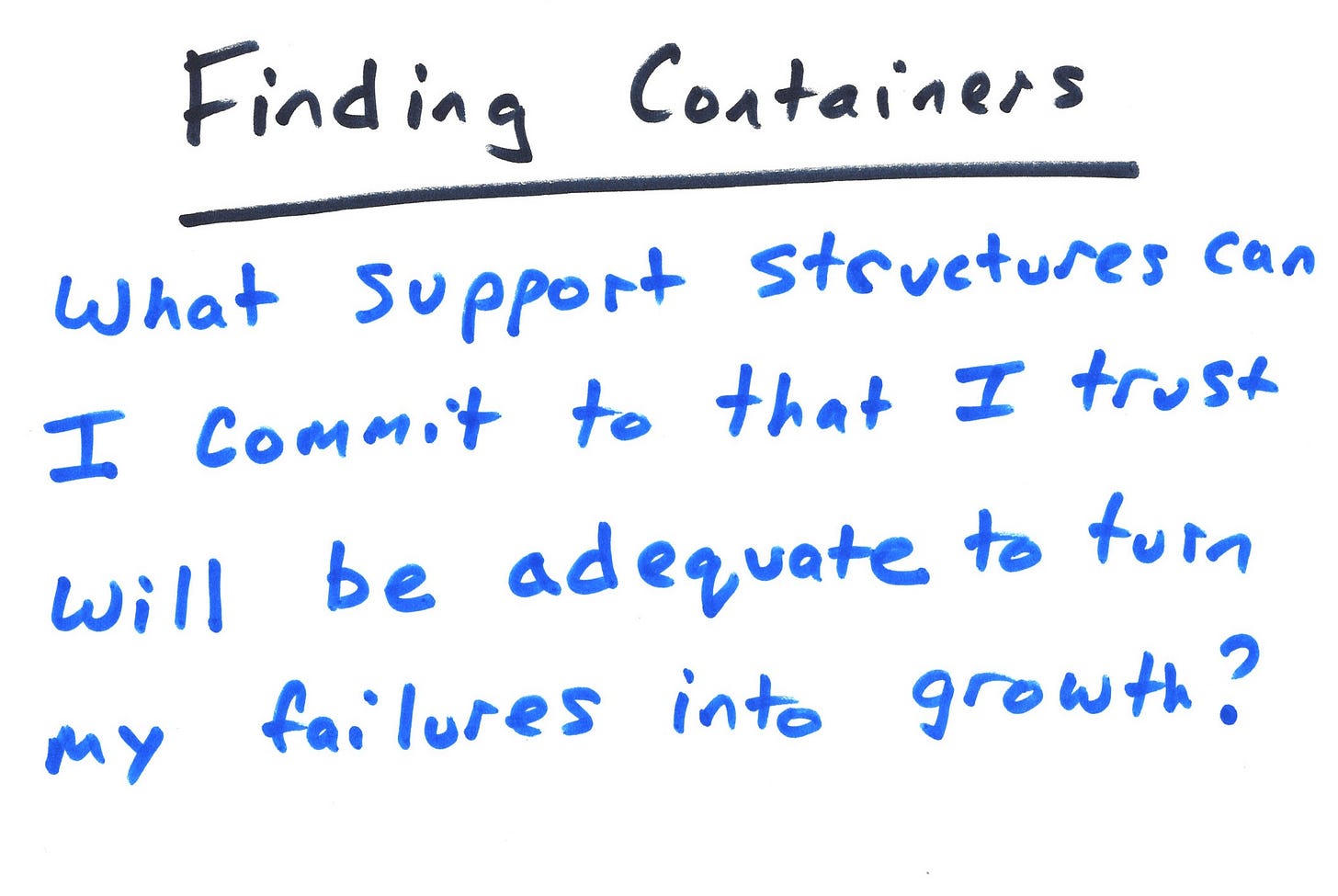
So much of this resonates with my experience over the last few years. Even in trying to better ourselves, and raise our agency, we modern western humans seem blind to our own progress being intimately tied to that of everyone else. We virtue signal, seek power to “manifest change”, amass knowledge which is ultimately to elevate ourselves. Only through service to others, do we ultimately find our own path forward. It’s a difficult lesson, one I’m still working on.
Great post, thanks for sharing this.